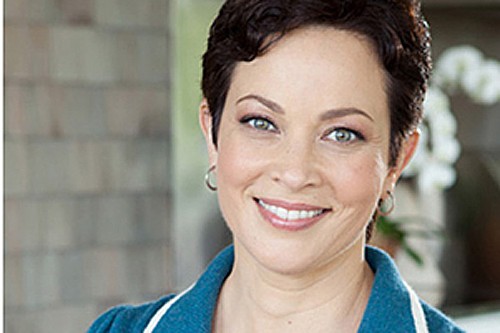
F&N: How did you get into dietetics? What was your initial motivation?
EK: was always a food lover. I was fascinated by it. I was an overweight child and when I was about 13, I decided to start eating healthier. With help of my mom, I really wound up transforming. I began to understand the impact [nutrition] could have … I majored in nutrition as an undergrad when I was premed, but the more I studied, I realized, “Wow, this is something that could captivate me for my whole life.” And it truly has done that. It never gets boring and I’m always riveted by the issues around nutrition.
F&N: How have you seen the dietetics profession change?
EK: I feel that there are more people coming into [dietetics] with an interest in culinary arts and food — a passion for food that maybe wasn’t as strong as before. That’s just my opinion. In terms of the profession, [nutrition] has become a topic or issue that’s really central to the conversation in this country. People are talking about food. People are talking about how it affects their bodies. There’s an awareness [among] everyone across all ages. And I really don’t think it was like that 20 years ago.
F&N: What are you surprised we are still learning about when it comes to food and nutrition?
EK: Well actually, nothing. My journalism professor was a founding member of the “Tentative Society,” the essence being that everything we now know to be true is tentative. And I think that’s how we need to approach [nutrition]. Once we get dogmatic, we’ve stopped becoming scientists, and that’s the tendency. You start to build your career on an idea that one concept is true, and the science may support it at that point. But as science evolves, we must be openminded and willing to shift our approach. We’ll always learn new things about how our bodies work and how nutrients work. I expect it to always be changing and evolving. The minute you think it’s not, you’ve stopped being a critical thinker.
F&N: Your upcoming lecture at FNCE® has to do with bringing cooking back. Do you feel that some RDNs have lost touch with the kitchen?
EK: For me, I feel like this is a huge issue with our profession. We really started off as a profession cooking for people. Ultimately it kind of parallels the women’s movement a little bit, because women couldn’t opt to be scientists, for the most part. I think there was this [idea that] we needed to change our aprons for lab coats in order to be taken seriously. Now, not only have we changed culturally where there are more opportunities for women — of course we can be scientists — but there’s also awareness that maybe science doesn’t have all the answers.
Also, cooking and understanding food is critical because that’s what people care about. We need to reach people in their hearts, as well as their minds, and people’s hearts are in food. Mine is! Pluck anyone off the street and ask them if they love good food. They will say yes. The number one reason people choose food is because it tastes good, it’s pleasurable, and people want practical, real solutions. If we don’t understand food and how to prepare it, we can’t give them that… We’ve come to a world where we’re divided. There’s taste over here [in this corner] and nutrition over here [in that corner]. People really think that they can’t have them both. If we can bridge the two, then we can reach people.
F&N: What are some challenges to understanding the nuances of cultural diversity?
EK: They go hand in hand. Trying different things from different cultures is essential to forwarding your education about food. My daughter goes to a dual-language school [where they learn in] Spanish and English. About 60 to 70 percent of population is Spanish-speaking at home. I started the wellness committee there, and it’s amazing how [food] is a common ground. Instead of telling people what to do, you can talk to them: “What kinds of foods do you like to celebrate with?” And that’s how we started, for example, cutting mangoes at parties. We’re reaching cultural populations by engaging them in this conversation. Let them teach you their tamale recipe! Having that sharing. I think it would benefit dietitians to do that with all their clients — whether you’re teaching in a group setting or individuals or you’re working in a hospital — to engage with and let them show you something. It creates more openness. There’s an inherent trust building when you share your food with someone.
The Lenna Frances Cooper Memorial Lecture is Sunday, October 20 from 10-11:30 a.m.
